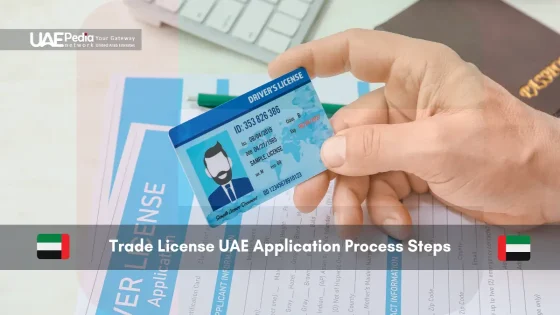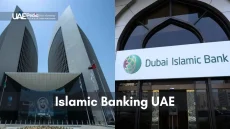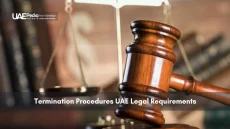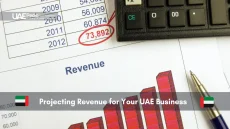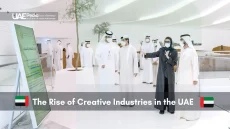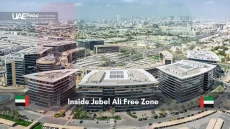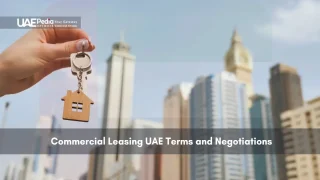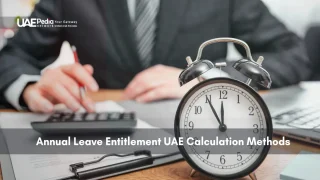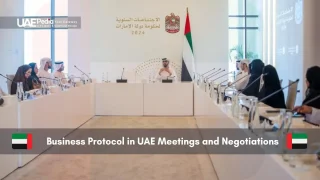What if the key to unlocking Dubai’s golden business opportunities isn’t just ambition—but a single document? Over 2,000 business activities thrive here, from tech startups to artisan coffee roasters, all requiring official authorization to operate. That’s where your journey begins.
The Department of Economic Development (DED) acts as your gateway, issuing permits that transform ideas into legally recognized ventures. Whether you’re opening a boutique design studio or launching an e-commerce platform, this approval isn’t just paperwork—it’s your ticket to credibility in a market where trust opens doors.
Why does this matter? Beyond compliance, your permit connects you to global trade networks and local partnerships. Startups gain legitimacy overnight, while established firms expand their reach. And with options to bundle multiple activities under one authorization, flexibility meets efficiency.
Ready to navigate the process? We’ll walk through each step—no jargon, no guesswork. For a deeper dive into UAE business license requirements, keep this guide handy.
- Authorization from the DED ensures legal operation and market trust
- Four main permit types cater to commercial, professional, industrial, and tourism activities
- Streamlined steps turn applications into opportunities within weeks
Overview of Trade Licenses in the UAE
Imagine walking into Dubai’s bustling market, your business idea ready—but what’s the first key step to make it official? Every venture here operates under specific business permits that validate your operations. Think of them as golden tickets: without one, you can’t join the city’s economic carnival.
Four main categories exist. Commercial permits cover shops selling products, from designer boutiques to tech gadget stores. Professional permits apply to skill-based services like architects or consultants. Need to manufacture goods? An industrial permit aligns with factories or production hubs. Then there’s the general trading permit—ideal for businesses importing, exporting, or distributing multiple product lines.
Choosing the right category matters. A graphic design studio needs a professional permit, while an online retailer selling handmade ceramics requires a commercial one. The Department of Economic Development (DED) reviews each application to ensure activities match the permit’s scope. As one entrepreneur put it: “Your permit isn’t just legal compliance—it’s your company’s identity card.”
Why stress over this selection? Mismatched permits delay approvals or limit expansion. For example, a café with a commercial permit can’t suddenly offer cooking classes without updating its authorization. We’ll explore how to align your goals with the DED’s framework next—turning paperwork into strategic advantage.
Key Benefits of a Trade License in Dubai
Ever wondered why Dubai’s skyline sparkles with both ambition and actualized dreams? Beyond its glittering towers lies a system designed to turn entrepreneurial visions into reality—fast. Let’s unpack how local permits create global opportunities.
Tax Perks That Accelerate Growth
Dubai’s 0% corporate and income tax policies aren’t just buzzwords—they’re rocket fuel for startups. One tech founder shared: “We reinvested every saved dirham into R&D, outpacing competitors in months.” Combine this with:
| Permit Type | Tax Exemptions | Setup Speed | Special Perks |
|---|---|---|---|
| Commercial | Import/export duty waivers | 7-10 days | Multi-product flexibility |
| Professional | VAT exemptions for services | 5-8 days | Home office approvals |
| Industrial | Customs rebates | 10-14 days | Export subsidies |
Trust That Opens Doors
Your permit doubles as a credibility badge. Banks process loans faster for authorized businesses, while partners prioritize collaborations with DED-approved entities. Recent surveys show 83% of consumers trust permitted companies over unregistered rivals.
Government initiatives like the Golden Visa program further sweeten the deal—long-term residency for investors meeting specific criteria. As Dubai’s economy diversifies, your paperwork becomes a passport to tomorrow’s opportunities.
Getting Started with Your Trade License Application
Think of launching your venture like building a sandcastle—start with a solid foundation. Your business name and structure form the base that determines everything from branding to banking. Let’s dig into these first critical choices.
Crafting Your Business Identity
Your company’s name isn’t just a label—it’s your first handshake with customers. The government requires names to avoid religious references, offensive terms, or existing trademarks. Pro tip: Check the Department of Economic Development’s online portal before falling in love with “Desert Rose Designs.” One café owner learned this the hard way: “We had to rebrand three times—wasted weeks!”
Blueprint for Success: Structure & Scope
Will you fly solo as a sole proprietorship or partner up as an LLC? Your legal structure impacts liability, taxes, and growth potential. Here’s a quick comparison:
| Structure | Ownership | Liability | Ideal For |
|---|---|---|---|
| Sole Proprietorship | Single owner | Personal assets at risk | Freelancers |
| LLC | 2-50 partners | Limited to investment | Startups |
| Free Zone Entity | Foreign ownership allowed | Varies by zone | Tech firms |
Next, map every business activity you’ll perform—even future plans. A bakery listing “artisan bread sales” can’t legally offer cooking classes later without updating their permit. Free zones like Dubai Silicon Oasis often provide pre-approved activity lists for tech and creative fields.
Remember: Clear definitions today prevent paperwork headaches tomorrow. As one consultant advised: “Describe your work like explaining it to a 10-year-old—simple beats fancy every time.”
Required Documents and Legal Considerations
Paperwork might not spark fireworks, but in Dubai’s business world, it’s the fuse that lights success. Missing one signature or mismatched passport copy could stall your launch—like showing up to a desert safari without sunscreen. Let’s unpack the essentials that turn bureaucratic steps into strategic momentum.
Your Business’s Birth Certificate
The Memorandum of Association (MOA) isn’t just legal jargon—it’s your company’s DNA. This document outlines ownership percentages, profit-sharing, and operational rules. Pair it with passport copies of all partners (certified and translated if necessary), and you’ve built your venture’s first cornerstone. One logistics founder shared: “Getting our MOA right felt tedious, but it saved us three months of re-submissions later.”
Naming Rights: More Than Just Creativity
Before dreaming up catchy titles, check the DED’s online portal. Names can’t duplicate existing ones or include restricted terms like “Bank” or “Royal.” Pro tip: Have three options ready. A boutique owner learned this after her first choice—”Sands of Time”—was flagged for similarity to a hotel chain.
Your application form hinges on this approval. Think of it like applying for a passport: no nickname shortcuts. Government fees vary by type business, but all require:
- Notarized MOA with partner signatures
- Passport scans meeting resolution guidelines
- Proof of name reservation
Dubai rewards those who dot every i. As one consultant put it: “Clean paperwork isn’t red tape—it’s your first business contract with the city.” Nail this stage, and you’re not just starting a business—you’re crafting a legacy.
Navigating Department of Economic Development Approvals
Picture this: your business plan is a treasure map, but without the right stamps, you’ll never reach X marks the spot. The DED’s approval process acts as those crucial stamps—transforming concepts into operational realities. Let’s decode how to sail through these waters smoothly.
Initial and Additional Approvals
First comes the initial assessment—a 3-5 day review where officials verify your activity alignment and documentation. One logistics startup founder noted: “They flagged our warehouse location—we hadn’t realized industrial zones needed extra permits.” Here’s what varies by sector:
| Approval Type | Documentation Needed | Timeline | Notes |
|---|---|---|---|
| Initial Review | MOA, passport copies | 3-5 days | Basic eligibility check |
| Media Activities | Content clearance certificates | 7-10 days | Required in free zones |
| Industrial | Safety compliance reports | 10-14 days | Zone-specific permits |
Submission and Documentation Tips
Treat paperwork like a VIP guest—organized, punctual, and well-dressed. Always submit digital copies and physical files. Free zones like Dubai Media City offer pre-vetting services for content creators, slashing wait times.
Pro tips from seasoned applicants:
- Use color-coded folders for each approval stage
- Track submissions via DED’s SMS updates
- Respond to queries within 24 hours—delays reset timelines
“A checklist saved us—we missed a notary seal on page 8 initially.”
Comparing Free Zones, Mainland, and Offshore Licenses
Picture standing at a desert crossroads—three paths leading to your business future. Each route—mainland, free zone, offshore—offers distinct horizons. Your choice shapes everything from customer reach to operational freedom. Let’s map these territories.
Mainland: The Urban Advantage
Operating mainland means planting your company name in Dubai’s bustling heart. You’ll need a local partner (51% ownership), but gain unlimited access to UAE markets. Perfect for businesses wanting physical stores or government contracts. One restaurant owner shared: “Serving both malls and hotels? Mainland was our only real option.”
Free Zones & Offshore: Specialized Playgrounds
Free zones like Dubai Internet City offer 100% foreign ownership and tax breaks—ideal for tech startups and digital nomads. Offshore setups work for asset protection and international trading, but can’t operate locally. Compare key features:
| Feature | Mainland | Free Zone | Offshore |
|---|---|---|---|
| Ownership | 51% local | 100% foreign | 100% foreign |
| Market Access | Unlimited UAE | Zone/export | International only |
| Setup Cost | $15k+ | $7k-$12k | $5k-$8k |
| Activity Types | Broad | Specialized | Non-operational |
Your business activity types determine the best fit. Media production thrives in free zones, while consulting firms often prefer mainland flexibility. As Jebel Ali Free Zone reports: 63% of new companies there export globally within their first year.
“We chose Dubai South Free Zone—customs clearance takes 2 hours versus 2 days elsewhere.”
For a comprehensive comparison of visa options, tax structures, and renewal processes, bookmark this guide. Remember: Your zone choice becomes your business DNA—choose where your ambitions can evolve.
Choosing the Right Business Location in Dubai
Where you plant your business flag in Dubai isn’t just about postcodes—it’s about profit margins and paperwork. Mainland spots let you tap into local markets directly, while free zones slash costs for global-focused ventures. Let’s map what each choice means for your office needs and aed budget.
Mainland setups demand physical office spaces—think 200+ sq ft in commercial towers. Free zones? Many offer flexi-desks or even virtual addresses. A tech founder shared: “Paying 25,000 AED annually for a Dubai Silicon Oasis desk beat mainland rents by 40%.” Compare key factors:
| Location Type | Setup Cost (AED) | Office Requirement | Approval Time |
|---|---|---|---|
| Mainland | 55,000+ | Physical space mandatory | 14-21 days |
| Free Zone | 25,000-45,000 | Flexible options | 7-10 days |
| Dubai South | 32,000 | Shared workspaces | 5 days |
Proximity matters too. Mainland businesses near DED offices often get faster approval stamps—one logistics company cut processing time from 3 weeks to 9 days by leasing in Business Bay. Free zones handle most paperwork internally, skipping multiple government visits.
Your industry steers the choice. Retail brands thrive mainland with storefront access, while e-commerce ventures save 18,000+ AED yearly in free zones. As a media startup founder noted: “Our Dubai Studio City address opened film permits we couldn’t get elsewhere.”
Three quick tips:
- Calculate 5-year occupancy costs—include hidden fees like municipality charges
- Visit shortlisted areas during work hours—test WiFi speeds and parking
- Check if your activity requires zone-specific approval (e.g., fintech in DIFC)
Whether you’re budgeting 50,000 AED or 500,000 AED, your location becomes your business’s heartbeat. Choose where your growth plans pulse strongest.
Step-by-Step Guide for Completing the Application Form
Ever felt like a puzzle piece in Dubai’s business mosaic? Your application form is the glue that locks everything into place. Entrepreneurs often underestimate its power—until one unchecked box delays their launch by weeks. Let’s transform this paperwork into your launchpad.
Filling Out the Application Details
Start by gathering your passport copies and business name reservation certificate. One founder shared: “We scanned passports at 600 dpi—anything less gets rejected faster than expired karak tea.” Follow this roadmap:
| Step | Action | Time Needed | Pitfalls |
|---|---|---|---|
| 1 | Enter company name & structure | 15 mins | Typos in legal names |
| 2 | List business activities | 30 mins | Vague descriptions |
| 3 | Upload passport scans | 10 mins | Low-resolution files |
| 4 | Review & submit | 5 mins | Missed checkboxes |
Registration becomes smoother when entrepreneurs prep these three items:
- Color-coded folders for each partner’s documents
- Digital backups of all files (cloud + USB)
- A checklist matching DED’s online guidelines
Double-check every field—especially passport numbers and activity codes. A café owner learned this hard truth: “We listed ‘beverage services’ instead of ‘F&B establishment’—cost us 12 days in revisions.”
“Treat the form like your first client pitch—precision builds trust from day one.”
With these steps, your registration journey shifts from stressful to strategic. Ready to click ‘submit’?
Understanding the Costs, Fees, and Payment Structure
What if your business budget could predict success? Let’s decode the numbers behind permits—where every dirham spent becomes an investment in credibility. Costs here aren’t roadblocks; they’re stepping stones.
Breaking Down the Numbers
Expect three main expense categories when launching:
| Fee Type | Average Cost (AED) | Determined By |
|---|---|---|
| Application | 12,000-20,000 | Business type |
| Office Space | 18,000+/year | Location & size |
| Consultancy | 5,000-15,000 | Service package |
One startup founder shared: “Our consultancy fees saved us 9,000 AED in hidden charges—they knew which approvals we could skip.” Processing typically takes 7-14 days after payment clears. Delays? Usually from incomplete paperwork or bank transfers taking 3-5 days to reflect.
Office space costs vary wildly. A mainland design studio might pay 55,000 AED annually for a Business Bay address, while free zone e-commerce ventures find shared spaces for 25,000 AED. Pro tip: List every possible activity upfront—adding services later triggers new fees.
Consultancies shine here. They’ll map your expenses against growth phases, negotiate workspace rates, and even fast-track payments. As one advisor put it: “We turn spreadsheets into strategy—your receipts should tell your business story.”
Trade license UAE Renewal Process and Timelines
Renewing your business permit in Dubai is like giving your venture a health check—skip it, and even the strongest ideas can stumble. Free zone teams and mainland entrepreneurs alike face annual deadlines, but with smart prep, this routine task becomes painless. Let’s explore how to breeze through renewals while keeping your operations running smoothly.
Preparing for Renewal
Start 60 days before expiration. Gather updated documents like:
- Current permit copies
- Partner passport scans (certified if expired)
- Lease agreements for office space
Free zone companies often need extra approvals—media firms submit content samples, while logistics providers update warehouse safety certs. One e-commerce founder shared: “We thought renewals were automatic—wrong! Our shipment got held for 10 days over a missing customs form.”
Timely Documentation and Fee Payments
Mark your calendar for two critical dates:
| Task | Deadline | Penalty (AED) |
|---|---|---|
| Fee payment | 30 days pre-expiry | 500/day delay |
| Document submission | 15 days pre-expiry | Activity freeze |
Set payment reminders and confirm bank processing times. Many free zones offer auto-debit options—ideal for busy individuals juggling multiple projects. Late renewals risk operational halts, visa cancellations, and reputational hits.
Pro tip: Bundle renewal tasks with annual audits. As one consultancy advises: “Treat compliance like coffee breaks—small, regular doses prevent burnout.” Stay ahead, and your business setup remains a growth engine, not a paperwork nightmare.
Final Reflections on Securing Your Trade License
Dubai’s skyline isn’t just steel and glass—it’s a mosaic of dreams turned into thriving business Dubai ventures. From navigating permit types to choosing strategic locations, your journey mirrors the city’s blend of ambition and meticulous planning.
What makes this process worth it? Beyond compliance, your authorization becomes a springboard. Startups gain instant legitimacy, while established firms unlock tax perks and global networks. As one café owner put it: “Our permit wasn’t a hurdle—it was our first loyal customer.”
Dubai’s ecosystem thrives on simplicity. Free zones slash setup costs for digital nomads, while mainland offices position you at the heart of local commerce. Consultants here don’t just file paperwork—they craft roadmaps aligning your goals with evolving regulations.
Ready to join the ranks? Let your business Dubai story begin with confidence. The city doesn’t just welcome ideas—it rewards those who take the leap, one stamped document at a time.
Approval timelines vary based on license type and location. Mainland applications through the Department of Economic Development typically take 5-7 working days after document submission, while free zones often process approvals faster—sometimes within 48 hours if requirements are met upfront.
Free zone licenses allow you to conduct business within your chosen zone or internationally. To operate on the mainland or sell directly to UAE consumers, you’ll need additional approvals or a local distributor partnership—a key detail to discuss during your business setup planning.
Commercial licenses cover trading goods, while professional licenses apply to service-based businesses like consultancy or creative work. Your activity list determines the type—matching it correctly ensures smoother approvals and avoids costly revisions later.
Mainland licenses generally require leased office space, but many free zones offer flexi-desk or virtual office packages. Offshore setups typically don’t need physical presence—ideal for global entrepreneurs prioritizing tax efficiency.
Renewal fees range from AED 15,000 to AED 30,000 annually for mainland licenses, depending on activities. Free zones often have lower renewal costs but may charge for visas or amenities. Always factor in hidden fees like knowledge dirham or innovation charges.
Yes, but it requires submitting an amendment request to the DED or free zone authority with updated documentation. Some activities may need extra approvals—plan for 3-5 working days and potential fee adjustments based on your new scope.
Late renewals incur penalties—usually AED 500-1,000 per month—plus potential operational freezes. Set calendar reminders 60 days before expiry to gather updated documents and avoid service interruptions that could impact your company’s credibility.
